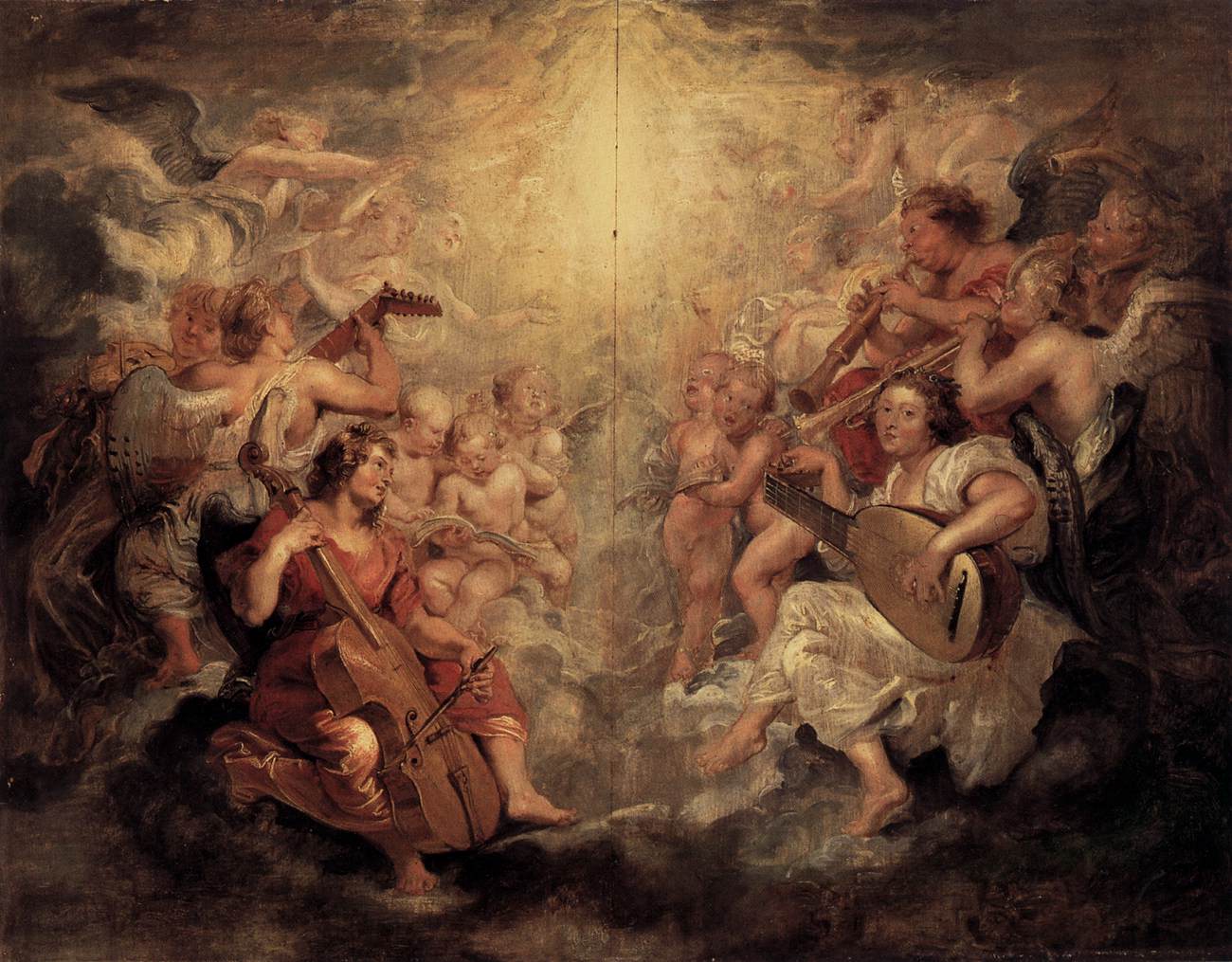Description
The painting Music Making Angels by the Flemish artist Peter Paul Rubens is a masterpiece that stands out for its Baroque style and its dynamic composition full of movement. This work, with an original size of 65 x 83 cm, is a representation of heavenly music and the angels that make it possible.
Rubens' artistic style is characterized by his use of light and shadow to create a dramatic and realistic effect in his works. In Music Making Angels, this effect can be seen in the way the angels are illuminated by heavenly light radiating from the top of the painting.
The composition of the work is one of its most interesting characteristics. The angels are represented in different positions and attitudes, playing different musical instruments such as the flute, the violin and the guitar. The sense of movement and harmony among the angels is evident in the work, creating a sense of peace and serenity.
Color is another important aspect of the work. Rubens uses soft, warm tones such as pink, blue, and gold to create a heavenly, heavenly atmosphere. The details of the angels' wings and the clouds behind them are rendered with great precision and detail, demonstrating the artist's technical skill.
The history of the painting is little known, but it is believed to have been created in the 17th century for the Gonzaga family chapel in Mantua, Italy. The work was later acquired by Cardinal Leopoldo de' Medici and is currently in the collection of the Museum of Fine Arts, Boston.
In conclusion, Music Making Angels is an impressive work of art that stands out for its artistic style, composition, color, and technical skill. The depiction of heavenly music and the angels that make it possible create a sense of peace and serenity that is unique to Rubens' work.

